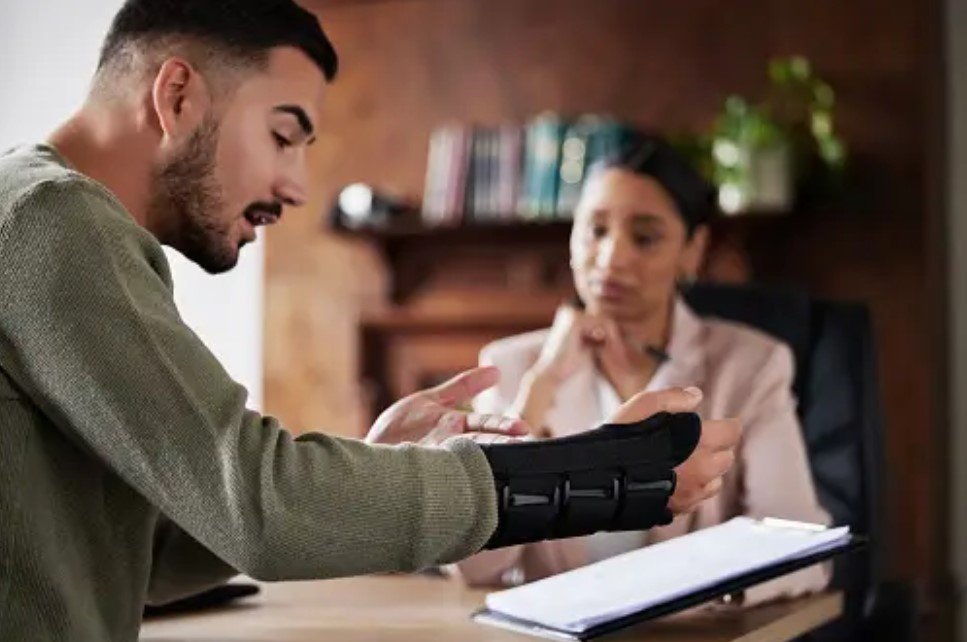Law
Rising Medical Costs After a Personal Injury in Pennsylvania: What You Need to Know

Imagine this: you’re enjoying a weekend bike ride through the picturesque Pennsylvania countryside when a reckless driver cuts you off. The impact sends you flying, leaving you with a broken arm and a concussion. Thankfully, you’re alive, but the physical and emotional toll is undeniable. As the weeks turn into months, the reality of mounting medical bills sets in.
According to a 2023 report by the Pennsylvania Health Care Cost Containment Council, healthcare spending in the state has risen by an average of 5.2% annually over the past five years. This translates to a significant financial burden for anyone facing unexpected medical needs, especially those stemming from a personal injury.
If you’ve been injured due to someone else’s negligence in Pennsylvania, you’re not alone. Here’s a comprehensive guide to understanding your rights and navigating the complexities of medical bills after a personal injury.
Understanding Your Rights After a Personal Injury in Pennsylvania
Pennsylvania operates under a “tort” system for personal injury claims. This means that if you’re injured due to another person’s carelessness, recklessness, or intentional misconduct, you have the legal right to seek compensation for your damages. These damages can include:
- Medical expenses: Past, present, and future medical costs associated with your injury.
- Lost wages: Compensation for income you were unable to earn due to your injury.
- Pain and suffering: Compensation for the physical and emotional pain caused by your injury.
- Property damage: Compensation for any damage to your belongings sustained in the accident.
A personal injury lawyer in Pennsylvania can help you understand the specific details of your case and determine the appropriate course of action.
The Financial Impact of Medical Bills After a Personal Injury
Medical bills can quickly spiral out of control after an accident. Here’s a breakdown of some common expenses you might face:
- Hospitalization: Costs associated with your stay in the hospital, including room charges, doctor fees, and medication.
- Surgery: Costs associated with any surgeries required to treat your injuries.
- Physical therapy: Costs associated with rehabilitation and physical therapy to regain mobility and function.
- Medication: Costs of prescription medications needed to treat your injuries.
- Durable medical equipment: Costs of any medical equipment needed, such as wheelchairs, crutches, or braces.
These are just some of the potential medical expenses you might face after a personal injury.
Protecting Yourself From Mounting Medical Bills
While the future is uncertain, here are some steps you can take to protect yourself from the financial burden of medical bills after a personal injury:
- Seek immediate medical attention: Ensure your injuries are properly documented and treated. This will create a clear medical record linking your injuries to the accident.
- Keep all medical bills and receipts: Organize and maintain a record of all medical bills and receipts related to your injury. This documentation will be crucial when seeking compensation.
- Consult with a personal injury lawyer in Pennsylvania: An experienced personal injury lawyer can advise you on your legal rights and help you navigate the complexities of the personal injury claim process.
When it comes to medical bills after a personal injury, knowledge is power. By understanding your rights and taking proactive steps, you can ensure that you’re not left footing the bill for someone else’s negligence.
Here are some additional FAQs to consider
- What if I don’t have health insurance? Even if you don’t have health insurance, you may still be able to recover compensation for your medical bills through a personal injury lawsuit.
- How long do I have to file a personal injury claim in Pennsylvania? In Pennsylvania, the statute of limitations for personal injury claims is generally two years from the date of the injury.
- What happens if the at-fault party doesn’t have insurance? If the person who caused your injury doesn’t have insurance, you may be able to seek compensation through your own underinsured motorist coverage (UIM) if you have it.
- Can a personal injury lawyer help me negotiate with my medical providers? Yes, a personal injury lawyer can advocate on your behalf and negotiate with your medical providers to potentially reduce your medical bills.
Remember, this information is not a substitute for legal advice. If you’ve been injured due to someone else’s negligence in Pennsylvania, consult with a qualified personal injury lawyer to discuss your specific case.
-

 Entertainment2 months ago
Entertainment2 months ago123Movies Alternatives: 13 Best Streaming Sites in 2026
-

 Entertainment2 months ago
Entertainment2 months ago13 Flixtor Alternatives to Stream Free Movies [2026]
-

 Entertainment2 months ago
Entertainment2 months agoGoMovies is Down? Here are the 11 Best Alternatives
-

 Entertainment2 months ago
Entertainment2 months ago13 Best Soap2Day Alternatives to Watch HD Movies Free






